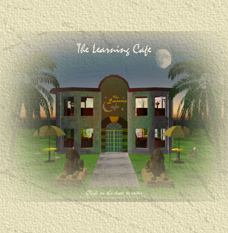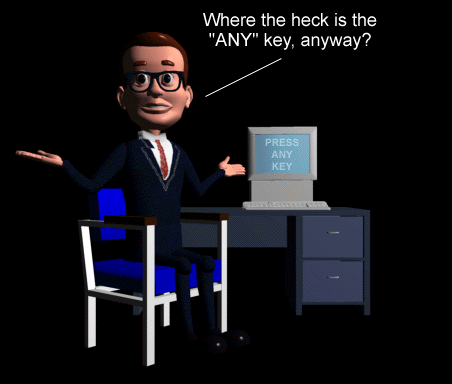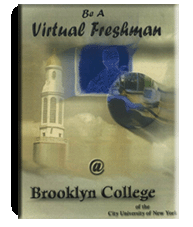Brooklyn College, funded by
a grant from the Department of Commerce’s Telecommunications and Information
Infrastructure Assistance Program (TIIAP, now known as the Technology
Opportunities Program)
http://www.ntia.doc.gov and in partnership with four
Brooklyn high schools, The City University of New York, and the College Board,
has created a unique secondary school learning environment and experience that
we call the Learning Café. In this setting, students (particularly those who
might be considered at-risk) learn to use the new technologies, explore career
options, and get a head start on their college careers.
We use the term Learning Café in
an intellectual sense: these Internet-connected facilities are cafés whose
menus offer information and academic resources, rather than cappuccino and
croissants. And, since technology needs both structure and content
the Learning Café combines electronic resources and tools in a program designed
to energize and stimulate students about both secondary and higher education.
Brooklyn College assisted each of
our high school partners in building its own Learning Café equipped with 34 PC
workstations, a server, and T-1 Internet access. We also assembled a quality
instructional team comprised of faculty, library, and technical staff, including
multimedia designers. As part of developing this dynamic learning environment we
have built the following software.

The Learning Café browser helps
us to realize these goals by controlling and monitoring the online environment
within a virtual café setting. The benefits of the Learning Café browser are:
|
Learning Café
Browser
The Learning Café browser is a
custom piece of software developed to present the online course content.
• Our primary goal in
creating the browser was to ensure that students entering the Learning Café
classroom are able to access their lessons in a friendly, non-threatening
environment.
• We also want to help
students to stay on track, increasing their chances of successfully
completing the courses.
• Finally, we aim to
provide a computer interface that is fun, engaging, and simple to use, even
for the most inexperienced novice. The browser literally looks like an
intriguing Internet café.
|
1. Control of the PC desktop.
The browser starts when the system boots; it then controls the display on the
monitor. Teachers will know how to quit the program, but students will not. This
enables the school to protect its systems from abuse or tampering (deleting
files or installing extraneous software, for example).
The browser displays Web content
as HTML pages without the aid of the Netscape or Explorer interface. The only
links available to students are those on the pages themselves, or set in the
custom browser. This prevents undirected browsing and the display of material
that is not course-related.
The browser also calls up a
password-protected screensaver after a specified period of inactivity, reserving
the machine for café students only. (This is an optional feature.). This
operation also refreshes the display, closing all open windows and returning to
a log-in screen.
2. Secure File Input/Output.
In order to evaluate the effectiveness of the Learning Café software,
instructors will find it useful to collect student data, record test scores,
track student progress, and set user preferences (such as bookmarks). However,
due to the limitations and security concerns presented by Java and JavaScript
technologies, the Learning Café uses Filemaker Pro–a robust, flexible, and
secure system for data collection and management.
3. Redundancy. The
Café Browser tests for an Internet connection, then checks the connection to
the fileserver, then looks for local disks when accessing files.
4. Student Friendliness.
The Learning Café custom interface is simpler to use than commercial browsers,
in part because it has more directed (and fewer) functions. URLs are accessed by
icons, menus, or hyperlinks, rather than by typing them in, and there are no MSN
channel options. The interface also provides a set of cross-curricular tools,
such as a calculator and a notepad, to assist the students with their lessons.
The application also offers help files and tutorials.
5. Administrative Interface. This
password-protected interface allows teachers to display quickly student
information, such as session time, quiz scores, and lesson history. Teachers can
also post messages, review assignments, and grade them. The administrative
interface also enables the teacher to change the lesson by typing in new URLs or
filenames.
6. Flexibility. The
Café browser opens a variety of file types and applications (unlike commercial
browsers) and will automatically search for files both on the network and
locally. The browser is a hybrid technology, based in equal parts on disk and
Internet technologies. This allows for some content to be delivered from a
fileserver or from a CD, from which it will deploy considerably faster.
7. Platform Choice.
The Browser is configured to deliver the Learning Café curriculum on Windows
machines. It has all the requisite files and applications to run stand-alone
from the install CD.
The Learning
Café Database
The Learning Café database
serves two purposes.
1. It stores organizational
and transient data for the online courses, including pointers to lesson Web
pages and questions for online quizzes.
2. The database also tracks
student usage and performance by recording information such as which lesson
a student is currently working on, and what grades he or she received on the
online quizzes.
Taken as a whole, this database
allows the dynamic creation of informative, individualized content and
customized quizzes for the students. It also supports automatic grading of
multiple-choice quizzes, facilitates the evaluation of individual students and
the local Learning Café project, and simplifies the process of adding new
quizzes, lessons, and courses to the Learning Café environment.
The Learning
Café Curriculum: The Junior Year
Brooklyn College has developed
two fully self-paced online courses for high school juniors1 which are delivered
through the Learning Café browser. High school teachers deliver the courses and
grade all assignments and tests.
The sequence of virtual study
offered in the Learning Café begins with a course for 11th graders in
information literacy. This course teaches the process of gathering, using, and
evaluating information; it also teaches students about computers. The
information literacy skills students develop as a result of completing this
course will help them to navigate any subsequent course more effectively,
whether it is offered in an electronic or a traditional learning setting.
The Information Literacy lessons
include:
 |
The least you need to know |
 |
A close look at your
computer |
 |
Your computer joins a
network |
 |
The Internet |
 |
World Wide Web browsers
and Netscape Communicator 4.05 |
 |
The Internet: General
resources |
 |
The Internet: Educational
resources |
 |
Searching the Internet |
 |
Libraries and information
literacy |
 |
Netiquette |
 |
Information literacy and
your future |
|

|
Juniors may then progress from
the information literacy course to an online course in writing and critical
thinking. This course engages them in building a better grammatical foundation
for their writing while expanding their critical thinking and reading skills,
familiarizing them with writings by various authors.
The writing and critical thinking
lesson topics include:

At some high schools freshman
and sophomore students are enrolled in these courses.
The content for both courses is
richly illustrated with illustrations and animations. It provides numerous
online exercises that help reinforce the principles that students are learning.
Student understanding for both of these courses is tested primarily through
online quizzes, which the students must take in order to progress to the next
lesson. Although these consist primarily of multiple-choice questions, most
quizzes also have short answer questions that are graded by a high school
teacher. Students in these courses also take proctored in-Café midterm and
final exams.
The
Learning Café Curriculum: The Senior Year
 First-semester high school
seniors explore college choices, then submit college and financial aid
applications using the College Board’s ExPan College application software. For
purchase and additional information on ExPan, click here: http://www.collegeboard.org/expan/html/indx000.html
First-semester high school
seniors explore college choices, then submit college and financial aid
applications using the College Board’s ExPan College application software. For
purchase and additional information on ExPan, click here: http://www.collegeboard.org/expan/html/indx000.html
Students may also learn to
build their own Web pages as part of this college application process. Upper
seniors who completed the Learning Café program were eligible to enroll in
Brooklyn College’s Internet-delivered college credit courses. For further
information about enrolling students in Brooklyn College’s Web-based courses,
contact Professor Miriam Deutch miriamd@brooklyn.cuny.edu
Technical
Specifications for a Learning Café
A Learning Café should be
outfitted with enough fully-networked Internet-accessible PCs to accommodate a
typical high school class.
Server–Minimum requirements
necessary for version 1 of software but not required for version 2:
133 Megahertz (MHz) Pentium–compatible
Central Processing Unit (CPU)
128 Megabytes (MB) Random Access
Memory (RAM)
2 Gigabytes (GB) Hard Drive with
650 MB of free space available
CD ROM or DVD-ROM drive
Windows NT version 4/2000
Static IP address
If you are using Filemaker Pro,
it should be at least version 4.
Microsoft TCP/IP or IPX/SPX (for
FileMaker Network Sharing)
Workstation–Minimum
requirements:
133 MHz Pentium–compatible CPU
64 MB RAM
200 MB free space available on
hard drive
CD ROM or DVD-ROM drive
24-bit color monitor, at 800x600
resolution
16-bit sound card
2-button Microsoft Mouse or
compatible pointing device
Windows 95/98/2000
connection to Local Area Network
(LAN) and Internet
There are 2 versions of the
Learning Café software available. Both versions include the Learning Café
browser.
Version 1. If
you have FileMaker Pro and are capable of maintaining it, Brooklyn College will
supply you the Learning Café software, including the browser, on a CD and the
URL’s. You can load it onto your server, where the software will interact with
FileMaker Pro. Students will be able to take their quizzes online and these will
be automatically graded. You will be able to access information about what
lessons students are presently working on, the number of times a student
accessed the lesson, number of times each student had to take the quiz to pass,
and the amount of time the student spent on each lesson. You can also track
Café usage and register new students. Student information may be organized by
class and section. Mid-term and final exams will be supplied along with the
software.
If you do not own FileMaker
Pro and would like to purchase it, click here for more information: http://www.filemaker.com/
Version 2.
We will give you the URLs as well as the CDs that contain the Information
Literacy and Critical Thinking and Writing courses. You can
either access the courses via the World Wide Web or locally on the CD. The
quizzes, midterm and final exams will be provided to you in paper copy. You will
administer the quizzes in print rather than online.
The curriculum comes with
technical support literature. Technical support via telephone, mail, or
in-person is not available. The system, however, has been fully debugged.
The Cost of a
Learning Café Franchise
Version 1 is a $1,500.00 one time
fee
Version 2 is a $1000.00 one time
fee.
Contact
Information
For further information and to
purchase contact:
Professor Miriam Deutch
Brooklyn College Library
voice: 718-951-5221
Email: Miriamd@brooklyn.cuny.edu



